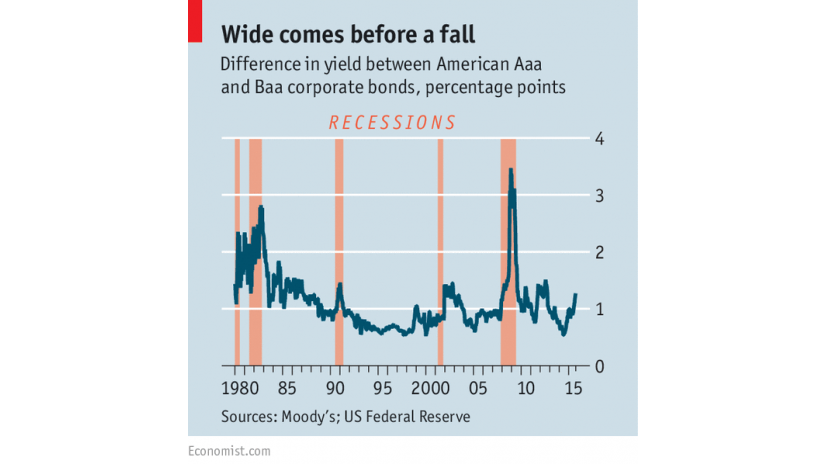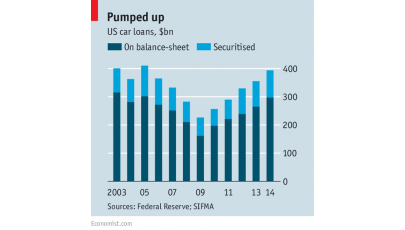THERE is no shortage of bad omens for the global economy at the moment. To name a few: plunging commodity prices, wobbly equity markets, weak world trade, reduced profit forecasts for American companies and lower long-term inflation expectations. In recent weeks, a new one has joined the list: rising corporate-bond spreads.
These spreads—the difference between the interest rates paid by governments and blue-chip companies and those paid by riskier borrowers—reflect the risk of default. Rising spreads imply that investors are getting antsier about being repaid. That anxiety may well stem from worry about the economy.
Spiking credit spreads have often been a harbinger of recession (see chart). As David Ranson of Wainwright Economics argues: “Yield spreads represent a market assessment of the strength of the economy and are not affected by any of the technical measurement problems that plague the GDP figures.”
As an indicator, credit is clearly not entirely reliable: a rise in spreads in 2012 was not followed by a downturn. As yet there is no sign of a rise in the default rate on high-yield debt: it...Continue reading





